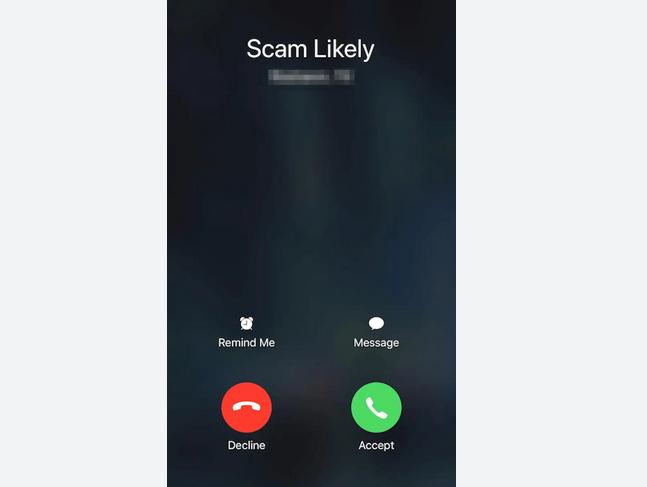Does the Social Security Administration Call You?
In this article we are going to take a look at phone scams claiming to be the Social Security but will ultimately aim to tell you if the administration will call you.

What Is the Social Security Administration?
The Social Security Administration (SSA) is an independent government agency that administers social security. It is an insurance program that consists of retirement, disability and survivor benefits. In order to qualify for these benefits most workers pay into the system through Social Security taxes.
The head offices of the Social Security agency are located in Woodlawn, Maryland and are referred to as the Central Office. There are tens of thousands of workers employed by the Social Security agency and it is the largest government program in the United States.
It is estimated that by the end of the 2022 fiscal year the agency will have paid out $1.2 trillion in benefits to 66 million citizens and legal residents of the United States. An additional $61 billion is expected in SSI benefits and $7.5 million to low-income individuals.
This government agency is a vital part of the country's economy and without it millions of already struggling Americans would have nothing. It is a program that many have paid into for decades in preparation for retirement and as an insurance policy against sudden disability.
History of the Social Security Agency
On August 14th 1935, President Franklin D. Roosevelt signed the Social Security Act into law as part of his New Deal initiative. This led to the creation of the Social Security Board (SSB), a presidentially appointed group of three executives tasked with overseeing the Social Security program.
With zero budget, staff or even furniture the SSB finally obtained funding from the Federal Emergency Relief Administration. It was on October 14th 1936 that the first Social Security office opened its doors in Austin, Texas.
In January of 1937 Social Security taxes were first collected. Just a few years later the first Social Security check was issued to Ida Mary Fuller of Battleboro, Vermont. Ida’s check was dated January 31st 1940 and she received $22.54.

The SSB in 1939 merged with the U.S. Public Health Service, the Civilian Conservation Corp and other government agencies to become the Federal Security Agency. In 1846 under President Harry S. Truman the SSB was named the Social Security Administration SSA.
In 1953 the Federal Security Agency was dismantled and the SSA was placed under the banner of the Department of Health, Education and Welfare. Finally in 1994 President Bill Clinton made the Social Security Administration an independent body once again.
How to Spot a Scam
We may think of ourselves as pretty savvy and feel we could easily spot a scam but these criminals can be very practiced and often convincing. There are a few basic signs of a scam according to the SSA these are:
The potential scammers will pretend to be from a legitimate government agency, one that will check out if you were to search it online. This is in order to gain trust and convince the potential victim that they have authority to contact you and do what they are doing:
- A scam will usually see the contacting party claiming there is a problem or prize that their victim must take action to avert or claim.
- Scammers will request payment in specific and sometimes unusual ways for example gift card numbers.
- Scammers will place pressure when contacting victims expressing a need for urgency. This is to rush their target into taking action before they stop to consider if this is all legitimate.

What Are Common Scammer Tactics?
Social Security scammers have a number of tactics they can use to convince and scare their victims into doing what they want including:
- Threat of legal action or arrest if payment for their bogus claims is not made straight away.
- Threats that your Social Security number can be suspended.
- Scammers may claim that you need to pay a fee for a recent law change which may benefit you financially. As an example if a cost-of-living adjustment (COLA) has been passed into law they may do a push to try and get Social Security beneficiaries to think they need to pay a fee for it to apply to them.
- They may pressure their potential victims to take immediate action including paying bogus fines or handing over sensitive financial or personal information.
- They often require payment via gift cards, prepaid credit card, wire transfer, cryptocurrency or mailed in cash (real Social Security agencies would not request payment by any of these methods).
- Some of these scammers may try and contact you on social media websites. This is something that legit agencies would never do.
Tricks Scammers Use to Seem Legitimate
Scammers are getting smarter and more dangerous making this an even more concerning issue. They will often use certain tactics to make them seem even more legitimate such as:
- They may use actual names of people who work for the SSA or the Office of the Inspector General. This means you could possibly do a search online and find out that these people actually do work for the authority claiming to contact you.
- Scammers today can spoof phone numbers so you might search the number that called you and it may be from the organization it claimed to be. They can even spoof the numbers of local police departments. Always call the authority that claims to have called you to determine if they did indeed reach out. Criminals can spoof how the number appears on your phone but can not receive a call made to those numbers.
- They may send very official looking documents through the mail or over email which can appear very convincing.
Does Social Security Call You?
Generally speaking the Social Security Administration will contact you by mail for the most part. This will be for things like telling you more information is required, problems with benefit applications etc. The Social Security Administration will usually only call you on the phone if you have requested a call back or have active ongoing business with them.

They will not make threats of arrest or legal action over the phone nor will they claim they are suspending your Social Security number. So as a general rule the Social Security Administration will not call you out of the blue. If you get a call claiming to be from them, end it and call Social Security directly. They will very likely tell you that they did not call and there is no issue. If the call was legitimate you can deal with them having ensured you are indeed talking to a real representative.
Final Thoughts
Social Security scam phone calls are on the rise and result in countless taxpayer dollars landing in the hands of criminals. The SSA will not call you unless you are actively working with them or they are calling you back. They most certainly will not call to threaten legal action and demand immediate payment to avoid imprisonment.
Reference SSA Locator
If you use any of the forms, definitions, or data shown on SSA Locator, please make sure to link or reference us using the tool below. Thanks!
-
<a href="https://ssalocator.com/blog/does-the-social-security-administration-call-you/">Does the Social Security Administration Call You?</a>
-
"Does the Social Security Administration Call You?". SSA Locator. Accessed on July 6, 2025. https://ssalocator.com/blog/does-the-social-security-administration-call-you/.
-
"Does the Social Security Administration Call You?". SSA Locator, https://ssalocator.com/blog/does-the-social-security-administration-call-you/. Accessed 6 July, 2025
-
Does the Social Security Administration Call You?. SSA Locator. Retrieved from https://ssalocator.com/blog/does-the-social-security-administration-call-you/.